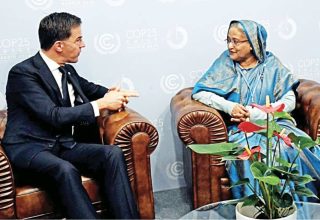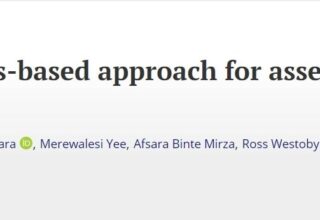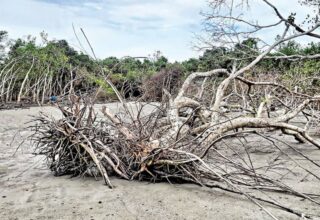
The recent agreement by all countries to establish a new fund for loss and damage from human-induced climate change at COP27 was a simple recognition of an unfortunate reality that has existed for a long time. The reality is that the impacts that are now scientifically attributable to global temperature rise are now happening every day around the world, and most countries, rich or poor, are not at all prepared to address those impacts.
This means that every country has to examine its existing systems in order to respond to climate impacts such as floods, cyclones, heat waves and wildfires, as well as slow onset events such as sea-level rise and prolonged droughts, and make them fit for purpose in the new era of loss and damage. In particular, this should now be a high priority in every climate-vulnerable developing country.
The International Centre for Climate Change and Development (ICCCAD) has initiated this research through the Least Developed Countries Universities Consortium on Climate Change (LUCCC), where preliminary scoping studies have already been conducted in 10 LDCs by young female researchers, the findings of which were presented to the negotiators from the LDCs at COP27. Every country already suffers from some climate-related issues, which will no doubt become worse due to the continued global warming, so every country needs to become better prepared by setting up a national platform to address loss and damage from human-induced climate change.
In Bangladesh, we have an opportunity to lead the other LDCs by taking forward the proposal to set up a National Mechanism for Loss and Damage (NMLD) as a public-private partnership under the leadership of the Ministry of Environment, Forest and Climate Change, as well as the ministries of disaster management, finance, and planning. Together with private sector actors such as insurance companies, civil society and researchers, Bangladesh is in a position to become a pioneer in developing a national-level mechanism to deal with the inevitable losses and damages caused by climate change.
Such a national mechanism could include ways to consolidate disaster preparedness efforts with adaptation efforts to minimise climate impacts as well as address the losses and damages once they take place. At the same time, mechanisms to provide both immediate and long-term support to the victims of climate change impacts can also be examined.
While the international negotiations on how to set up the loss and damage fund will no doubt continue until COP28, there is a lot of homework for the LDCs as well as other vulnerable countries to do to prepare their own governments and citizens to anticipate and deal with the now inevitable adverse impacts of climate change. Once the global fund is set up and running, an important aspect of who would be eligible to access the funds will be the ability of a recipient country to demonstrate its own national systems to address loss and damage domestically.
One final aspect to emphasise is the potential displacement of millions of people, particularly in the low-lying coastal areas, who will inevitably have to move despite our efforts to help them adapt where they are. This aspect of human displacement due to climate change has not been addressed well and needs to be prioritised. Bangladesh is in a good position to become a champion on this issue by taking actions at the national and local levels as well as by playing an important role in the international discussions in different forums, including but not exclusively at the upcoming COPs. This is also an important human security issue that should be taken up at the UN Security Council.
This would entail making the Bangladesh diplomatic corps experts in this issue, who will then be able to raise it at every appropriate international event and gathering, as it will undoubtedly gain importance going forward. By taking loss and damage from human-induced climate change seriously both at home and abroad, Bangladesh has an opportunity to become a global leader in addressing this rapidly escalating global crisis.
Originally this article was published on December 06, 2022 at Daily Star. The author Prof. Saleemul Huq is the director of the International Centre for Climate Change and Development (ICCCAD) at the Independent University, Bangladesh (IUB).
Email: saleemul.huq@icccad.org







